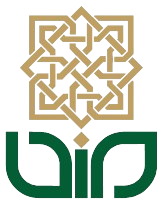Amid the
torrential flow of politics and interventions that often threaten it,
universities should serve as the last bastion for freedom of thought. But how
sturdy is that fortress standing? This question arose during a collaborative
lecture titled “Protecting Academic Freedom: From Mapping Violations to Policy
Actions,” held at UIN Sunan Kalijaga, Yogyakarta, on Wednesday (17/9/2025). The
event, initiated by the Social Welfare Studies and Sociology Program at UIN
Sunan Kalijaga in collaboration with The Indonesian Institute (TII), opened the
eyes of many parties to the challenges facing the academic world.
Unlike ordinary public lectures, the event at the Theatrical Hall of the Faculty of Da'wah and Communication felt warmer and more intense. Students, lecturers, and researchers sat together, not just to listen, but also to engage in dialogue unraveling sensitive issues rarely discussed openly. On stage were three speakers: Prof. Dr. Arief Maftuhin, Dean of the Faculty of Da'wah and Communication at UIN Suka; Adinda Tenriangke Muchtar, Ph.D., Executive Director of TII; and Ahmad Uzair, S.IP., M.A., Ph.D., lecturer in the Sociology Program.
Prof. Arief, in
his opening remarks, emphasized the importance of universities' role in
safeguarding critical reasoning. He highlighted how academic freedom is not
merely a right, but also the primary foundation for the advancement of
knowledge. “Academic freedom is not unlimited freedom. It must be accompanied
by responsibility,” said Prof. Arief. “Our responsibility as academics is to
ensure that the ideas we put forward are based on data, research, and clarity
of thought, not on orders or political interests.”
The session was
then continued by Adinda Tenriangke Muchtar. Frankly, she presented TII's
research findings that revealed a worrying trend. The report she presented was
like a mirror reflecting the faces of campuses in Indonesia that are starting
to crumble. The violations recorded not only came from outside, but also from
within—structural pressures, restrictions on research topics, to intimidation
against critical students and lecturers.
“Our findings
show that violations of academic freedom often occur systematically and
structuredly. This is no longer sporadic incidents,” explained Adinda. “There
are planned patterns of silencing that make academics and students reluctant to
speak out. This fear is the main enemy of freedom itself.” She mentioned
several cases, ranging from the rejection of theses on sensitive topics to
lecturers who had their teaching rights revoked for vocally criticizing
policies.
Ahmad Uzair
complemented the discussion from a sociological perspective. He led the
audience to understand how academic freedom is closely related to power
structures and social dynamics in the campus environment. According to him,
campuses must be spaces where ideas—even controversial ones—can be debated
healthily and scientifically.
“Academic
freedom is an indicator of a country's democratic health,” said Ahmad Uzair.
“When campuses as knowledge institutions are no longer free, the wider society
will also lose space for critical thinking. We must view it as a collective
problem, not just an internal campus issue.”
In his remarks,
the Head of the Social Welfare Studies Program, Muhammad Izzul Haq, Ph.D.,
stated that the event was motivated by the hope of increasing understanding
regarding issues of academic freedom and academic violations in the context of
campuses in Indonesia.
The event concluded with the signing of a memorandum of understanding (MoU) between the Social Welfare Studies Program and TII regarding education and research, including the dissemination of policy studies. (Fes-Kh)
